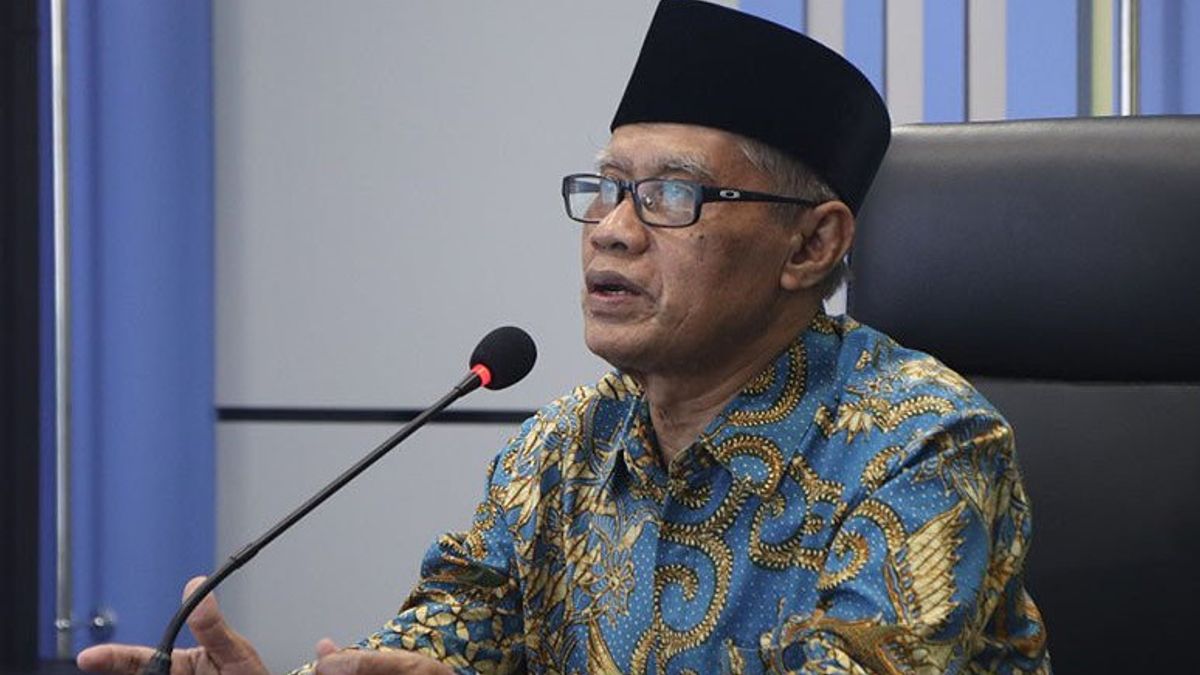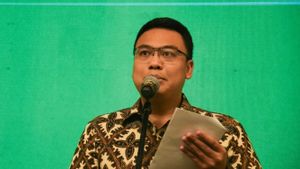JAKARTA - General Chairperson of the Muhammadiyah Central Executive Haedar Nasir said that there were at least five examples of the Indonesian Proclaimer Soekarno who should be imitated by the Indonesian people.
"First, Bung Karno has set an example for us as the founding fathers of the nation and the nation's fighters in our beloved country, namely the service, struggle, and selfless sacrifice for Indonesia, both during the fight against the invaders and after Indonesia's independence," said Haedar in a press release, in Jakarta, reported by Antara, Tuesday, June 22.
Bung Karno, he continued, had to be exiled to Ende, Bengkulu, and exiled to various places. In fact, Bung Karno was imprisoned in Bandung.
"Secondly, we learn from Bung Karno who was humble and loved the little people. Until the end of his life, we knew that Bung Karno had no wealth and material possessions, but his history of traveling loved the little people, physically and mentally," he said.
According to Haedar, the concept of Marhaenism is a manifestation of Bung Karno's devotion to defend the weak, the underprivileged, and the common people.
Haedar hoped that Bung Karno's actions would inspire the nation's children.
"Thirdly, we learn from Bung Karno about a leader who is intelligent, knowledgeable, insightful, and has national vision who crosses borders. Bung Karno is a learner who is always thirsty for knowledge, learning from anyone, from Tjokroaminoto, Kiai Dahlan, and other prominent figures. others who become references from the history of his journey in addition to world figures," he explained.
Bung Karno, continued Haedar, loved to read and his national vision transcended the times. Bung Karno was a figure who was able to integrate religion, Islam, and nationality or Indonesianness.
According to Haedar, when the Jakarta Charter was compromised, an agreement was born which became the basis of the August 18 1945 Constitution Day on Pancasila, in the precepts of Belief in One God.
"This is proof that Bung Karno is a figure who always looks for common ground about religion and Indonesianness, which is the fourth example," he said.
Even when issuing the Decree of 5 July 1959, it was stated that the Jakarta Charter was the spirit of the 1945 Constitution.
He added that Bung Karno really set an example that religion and Islam were not the opposite of Indonesianness, nationality. However, one compound for Indonesia.
"Fifthly, we learned from Bung Karno about statesmanship. Bung Karno's spirit of statesmanship crossed borders and surpassed everything. He prioritized the interests of the nation and state over the interests of himself and his group," he added.
In fact, Bung Karno had a dialogue with anyone and kept in touch with those with different political views.
Bung Karno became a figure who in critical moments put the interests of the people and the nation above all else.
"These five examples, in addition to many others, should be our reference for remembering Bung Karno, loving Bung Karno, and wanting to continue in the footsteps of Bung Karno as well as national figures in this beloved republic. How can we always fight selflessly and be humble without cultivating material things? and the love of the little people is born and inner in concrete actions," said Haedar.
He asked those who remember Bung Karno at this time not only to know him ritually, but also to take the essence of the footsteps of the man born on June 6, 1901.
The English, Chinese, Japanese, Arabic, and French versions are automatically generated by the AI. So there may still be inaccuracies in translating, please always see Indonesian as our main language. (system supported by DigitalSiber.id)













